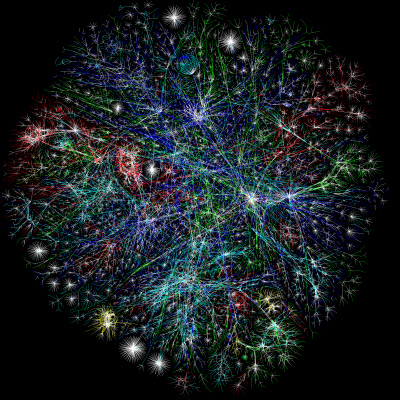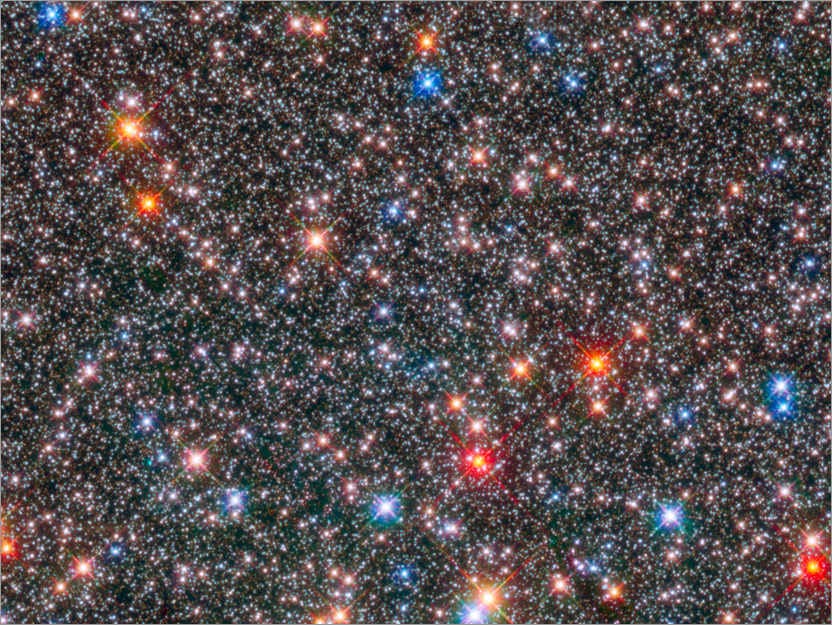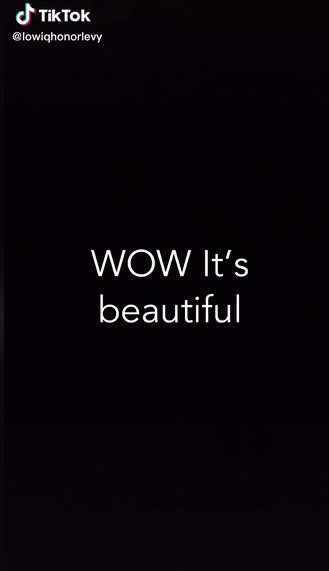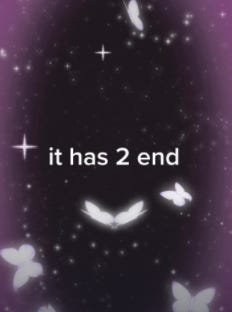WHAT IS THE INTERNET, ACCORDING TO HONOR LEVY, AND HOW LONG WILL IT LAST?
‘1s ago, 7 June 2021’
What is the Internet, and what is happening there right now, even today, since it is always a matter of today, of what was online today (‘1h ago’ or less)?
Heidegger took a lot of time asking the same question. Or rather, he asked himself what appears to be a separate question, which is what technology is. When he asked that question he ended up saying that the essence of technology is something non-technological. This ‘thing’ he called by an old German name, Gestell.
If you read what he says intuitively, I think you can easily propose that what Gestell means now is ‘the Internet’. Listen for example to this moment from what Heidegger wrote:
Will we correspond to that insight, through a looking that looks into the essence of technology and becomes aware of Being itself within it?
Will we see the lightning-flash of Being in the essence of technology?
If you strip away any bullshit, what this seems to say is the flashing or blinking of the digital experience is Being in the most powerful sense. But what is Being? Well, isn’t it just Pure Vibe?
Generally speaking, in Heidegger’s language in the essay just quoted from there is a lexicon of Einblick (entering, flashing glance, insight) and of Einblitz (in-flashing). That is, Gestell takes place as what lights up in various ways. And what flashes and blinks and glows now more perhaps than anything else is the experience of the Internet. What goes on and off—and not just on and offline—more than anything else, isn’t that what and where we are?
It is this ‘experience’ of the Internet that forms a kind of non-existent object, a non-essential essence. The Internet, after all, is not a straightforward experience, object or technology at all. It is certainly not always—even though it aspires to be and can be—a single totalizing image.
Natasha Stagg’s Sleeveless: Fashion, Image, Media, New York 2011-2019 memorably asserts that the Internet is connected to a certain impossibility:
When I think about the internet (which is impossible), I feel similar to when I have a crush.
The internet is an impossible object for thought: when I think about the internet (which is impossible), I don’t think about it (because I crush on it, because it crushes (on) me). The essence of the internet is not the internet, and this is what makes it impossible to experience and think about and picture the internet in toto. The internet is impossible.
As if to evoke just this same question, a young Honor Levy wrote about being an even younger internet girl (her younger self) thinking about the internet:
When I was 11, I Googled, what does the internet look like? Have you ever seen a picture of the internet? It’s beautiful.
The image she links to is this one:
Which we might compare with another one, which is a NASA image of the stars in the bulge of the Milky Way:
Over the last few days Levy made a large number of TikTok ‘art objects’—let’s not rush to know what to call them—and part of their complex force seems to be this simple witnessing as act: yes, I am on the internet, I am moving in and on it, I am blossoming in and as what may be the Singularity of the Internet right now, I might even say that the Internet or at least my iPhone is my Gestell, my studio, my miracle.
I intend to describe these TikToks in much more detail later on but for now, a screenshot, a fragment, an attempt to recollect the TikTok das Ding in some degree of tranquillity before its immanence is gone:
Stop just a moment to try and see what is happening here.
First of all, we perhaps have to see the fact that we have to stop to see at all now, to see what is happening, 1d ago or 1h ago or 1m ago or 1s ago, and to see what we are all the time seeing, ‘on the Internet’, and how it has more than enough of Being and Pure Vibe in it, to it, on it, about it.
We have to stop, at the very least now and again, because it may always be the case that the beauty of the screen and the vibe is what means a civilization, faced with irreversible tipping points now triggering co-extinction events, accelerates, more and more spellbound to and by a specific addictogenesis (the screen itself).
In ‘For a Neganthropology of The Cinematic’, during a discussion of the idea of the ubiquity of the screen, Daniel Ross uses the metaphor of how ‘a fish in a pot of slowly heating water supposedly fails to perceive its own, increasingly entropic situation’, and so,
In such circumstances perhaps only a quasi-phenomenological suspension is able to expose the milieu as such.
In other words, this screenshot of Honor Levy’s TikTok from ~ two days ago helps us do two things: first, to see that there is something evolved and deeply beautiful happening here, something that goes beautywards. Second, in the TikTok itself, which is here, a voice works out with itself and you how ‘it’ is going to end and show you a beauty-yield at the same time. How can the voice end, how can it make you see, how can it do both?
That is, how can the fish in the milieu of the Internet see enough to know what and that the beauty of the Internet is? Is the Pure Vibe a trap it will take millions of years to have seen, and to see through?
Or, is the wow here, inside what is beautiful as vibe, precisely this seeing through as the rotation of a necessary trap?
The evolvedness, without question, itself.
*
If you watch the @mimpathy TikTok—here, again—it actually sort of blinks on and off, in and out, like a voice going out as it simultaneously goes universewards and in. In the end, the voice is, let’s just say, strongly automated (verging on extreme abstraction, #voiceffects). Another way of putting it is that if we continue to survive and if there is anthropic proliferation and teeming in and beyond us, it remains possible that our greatest dialogues in the future will take place without us in our known form.
The dialogues will, in effect, be just like these in this Levy video.
According to what flashes here, it’s beautiful, and it’s also impossible. TikTok is impossible. It’s beautiful, impossible (an image). It’s impossible, more than impossible. A cine-Tok that is more than film.
Not only is it impossible to think about it, but it’s impossible to have an image of it, and to have an image of what is going on here, except a very fast small one, or the ones given.
I don’t have an iPhone and that means when I look at this TikTok archival light-fossil I get, perhaps by accident, the above preview jpeg which then doesn’t appear to be included in the cine-Tok-thing itself,
it has 2 end
This extra-frame (extraneous) may just mean the 48hr binge Levy was on while making new vision happen had to end (the e-girl must sleep at some point); but, it can also mean something more interestingly mysterious, like a command. As if to say:
yes, it’s beautiful, it has to end
A perhaps comparable example is the title of Tao Lin’s next book, Leave Society. Everyone knows the title even if they haven’t read the book. It’s a title that seems to come across the almost-decade in which it has been written to speak a simple imperative that maybe everyone has, by now, already read, even if they haven’t, even if they never do read the book. Such is what the Tibetans call understanding on-sight.
Yes, leave society everyone, before it’s too late.
Watching ‘lowiqhonorlevy’1 ‘binge’ live, on and off, blinking and tweaking myself, I felt like an 800 year old girl who was being asked to decide, or rather, to survive, a one-off extinction that, no matter how much I love the beauty of the universe ongoingly, I can’t help but think may be, wrongly or rightly, much much ‘worse’—but on what scale exactly—than it seems.
There again, it’s possible to review what it means to be on the Internet and to be crushed by it, and to think other multiversal things. To be on it is to encounter the addictogenic screen. And this addictogenic screen, which blinks and flashes, is what Heidegger describes as that which saves and that which threatens, at the same time.
The screen is the danger. But it also saves. The internet, which is impossible to think about, and beautiful, is the danger itself. This is what Heidegger says and instead of repeating what he says word for word, like an academic, let’s simply breakthrough and say what he says: The Internet is the place where Being, the Vibe of Being-On in the the fullest sense, including its universal sense as Vibe, flashes, bleeps, quirks up, intensifies, and hereby, through all this, turns away from and towards complete forgetting and extinction and magnification at the same time. This is why a day on the internet is everything. Because actually, it is everything.
*
But that isn’t enough. It isn’t enough to say.
How does a day or many days online non-stop look today? What do they do? Looking? Seeing? Which is almost to say, scanning and not seeing (it’s impossible, it’s beautiful)? What happens, to all these? And reading?
Let’s propose an axiom. Reading today never takes place, on the internet, because of the internet, because it never has to. There is, in this sense, no reading at all on the internet rn. Reading never takes place on the internet.
This is the deeper meaning of the acronym TL;DR (too long did not read). What this really means is that the ‘attention economy’ isn’t just lethally competitive, but beyond the need to read. A look, or scan, really can be enough. This is what the Internet teaches us—in flashes.
Literature isn’t just dead, it’s extinct, one might say. When we look online, we learn another looking by heart.
At least, that’s one way of looking at it.
We learn to repeat, even a one-off leaving or going away, and all that iterates, and re-vibes.
To read, still?
Even as you read this sentence, you are seeing a computogram made of electro-photons (the pixie dust of online readerly cocaine: light) instead of actual sense. At a fundamental level, we are dealing with a light-display. Einblick and Einblitz——from .gif to NFT to ‘heroin-screen’, the pixels you are now reading are an electrogram. From toggling a Mac to Dark Mode to recognising what Byung-Chul Han calls the ‘dataist phallus’ as a highly sexual and post-sexual fix, the screen is the source of a specific bleeping and a certain lightning. When Heidegger speaks, as if describing TikTok itself as a kind of all-night kiosk and light-abacus, of Einblick (entering, bleeping, insight) and Einblitz (in-flashing), all of this is connected to Being itself, which flashes out as part of the Gestell of online machines, as what he also calls a one-time only (einzig).
1s ago, 7 June 2021.2
Studio Angelicism.
The name is another story.







alexa play bladee
I just got a jade mini yesterday. I had nokia for awhile but I had to use a road map and couldn't pay at the parking meter, clamshell baby blue. I went through 3 all the same way: jumping in the pool. It doesn't make sense its not water proof when it's the color of clear sky reflected in a pool. When I had a water proof iphone, when I still went out, I'd do this joke where I spill an entire beer on my iphone and Freak out over my iphone. My new iphone! Not anymore, the jade mini isn't water proof. It doesn't make a difference if you have a nokia or an iphone, you're still online, it just doesn't live in your head as much, but you still live there just as much. Or you don't live at all. There was no river.